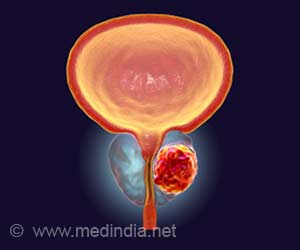A genetic marker has been found in at least 11 types of cancerous tumours that may pave the way for new tests and treatments for the disease.

"This new tumour marker may be used to improve cancer detection. Tumour imaging agents that bind to the new marker could be injected in the vasculature and would make visible early tumours located anywhere in the body," said Aurelian Radu of Mount Sinai, the study's lead author.
The researchers stressed that further tests were required to confirm their findings, and to discover whether the marker is present in tumours linked to other types of cancer.
But they said the discovery was "very promising" and could "ultimately provide a new diagnostic or therapeutic target to detect cancer early or stop growth."
The research, published in the October 21 issue of the New England Journal of Medicine, evaluated tissue samples from the tumours of 1,336 people with 11 types of cancer: prostate, breast, colon, pancreas, bladder, kidneys, lungs, liver, stomach, testicles and ovaries.
The study found that FSH, which is ordinarily found only in human reproductive organs, was present in the blood vessel cells of all the tumors evaluated in their study, regardless of the type or stage of the growth.
Advertisement
The researchers then examined the FSH receptors under an electron microscope, confirming that the receptors "accumulate on the blood vessels in the tumour but do not bind to blood vessels in the normal tissues."
Advertisement
That means the research could help medical professionals develop both a new way to test for cancer, but also a new way to treat it.
"New therapeutic agents can be developed that will block the tumour blood supply, either by inhibiting formation of new blood vessels, blocking the blood flow by coagulation, or by destroying the existing tumour vessels," Radu said.
Nicolae Ghinea, a French researcher on the study, said an expansion of the research could take years, but "one can imagine a universal treatment for a universal marker."
The study's authors said any future treatment could also prove easier for cancer patients to endure than chemotherapy and radiotherapy.
"The future agents are expected to have reduced side effects, because the target (FSH) is absent from almost all normal tissues, and in the blood vessels of the reproductive organs it is present in much lower concentrations than in tumours," they said.
Source-AFP















